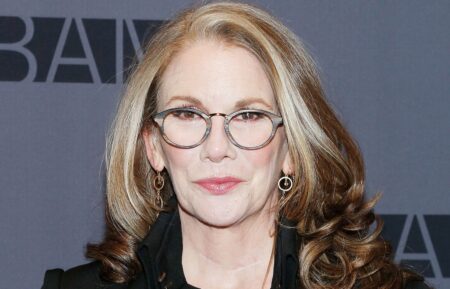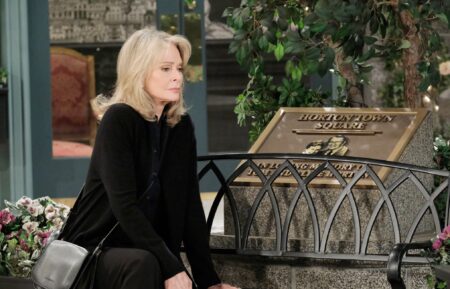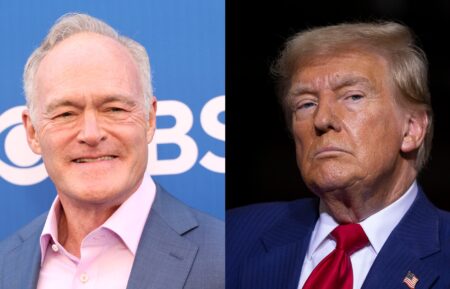‘Selena: The Series’s Ricardo Chavira on Bringing Selena & Her Father’s Bond to Life
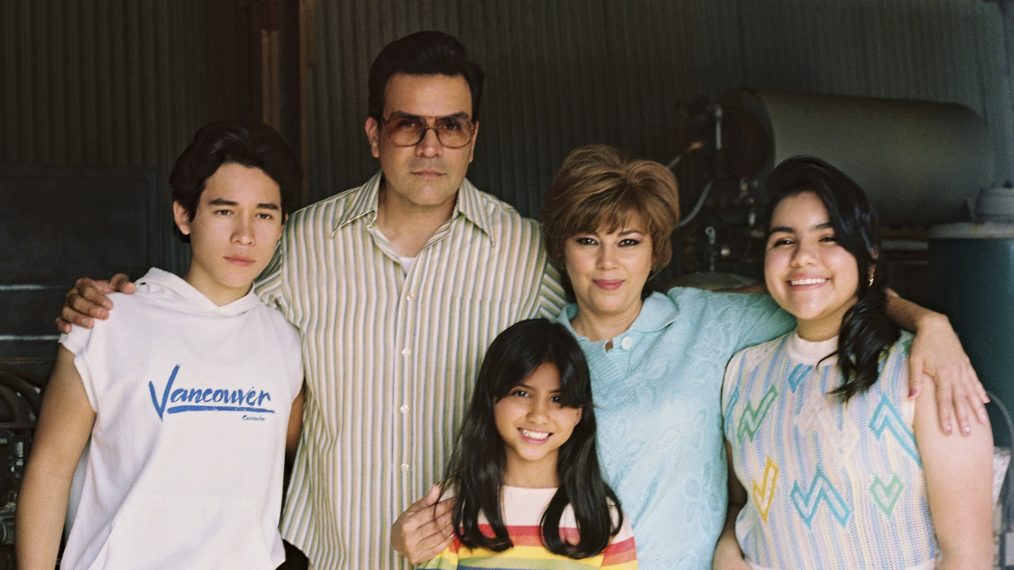
Q&A
It’s been over 25 years since the world lost Selena Quintanilla, the Queen of Tejano music, but her memory is being kept alive in Netflix’s latest biopic show, Selena: The Series.
Along with revisiting her path to musical success, the show, executive produced by sister Suzette Quintanilla, also shines a light on Selena’s (Christian Serratos) family and their intersecting lives. At the head of it all is Quintanilla patriarch, Abraham, played by Desperate Housewives‘ Ricardo Chavira.
As the driving force behind the family’s musical ambitions, Abraham keeps his family focused on future success. Below, Chavira opens up to TV Insider about bringing to life the father-daughter relationship, reveals why he’s never seen the 1997 film, and shares how his own family influenced his performance. And see what he has to say about the limited series’ second part.
What should people know about Abraham?
Ricardo Chavira: You know, he was a former musician himself and probably had some big dreams and aspirations. And he came up a little bit short, and as he was starting a family and had kids, he was probably trying to keep them entertained. They probably saw him playing his instruments. So he started sharing this local music with his kids.
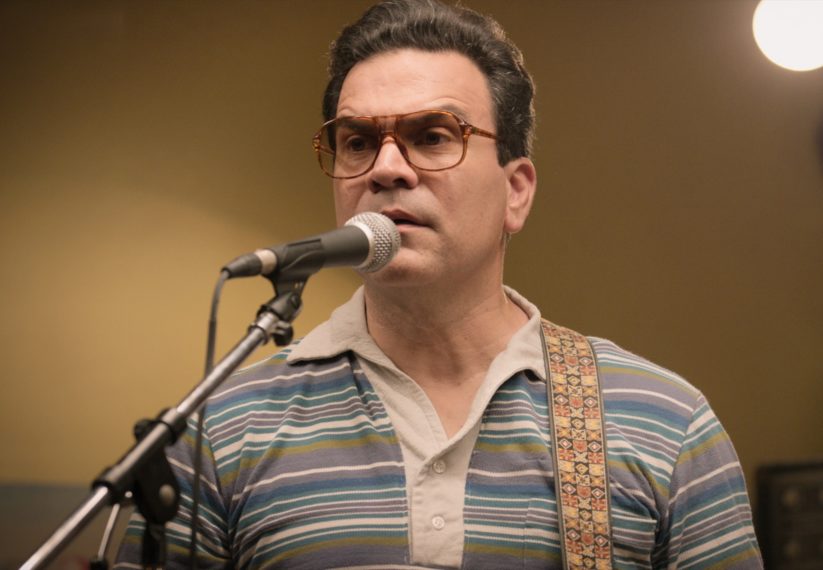
(Credit: Netflix)
What drew you to the role of Abraham? Did you see the 1997 feature Selena?
I’ve never seen the film.
Oh, wow! Really?
I do understand that the film primarily focuses on the Jennifer Lopez [who plays Selena] and Edward James Olmos‘ [who plays Abraham]. But the reason why I was drawn to this is because I’m from South Texas. All of my dad’s family is from South Texas. I’ve grown up most of my life in San Antonio, and South Texas has a very predominant Mexican American community. I am Mexican American.
This story is a story about a Mexican-American family from South Texas. So it was extremely important to me.
The film came out back in the ’90s shortly after her tragic death, and my father is a huge Tejano music fan, always had been. I just was not. But it’s not like it didn’t influence me. Anytime I got in my dad’s truck, he always had it on a Mexican music station and invariably a Selena song would pop on. So her successes and the story of that family is a bit of the landscape of my high school years and early college years.
That sounds like a special connection. I bet it helped you get into character.
It did. So when I was going down the road of the audition process for this, I purposely did not watch the film because I didn’t want it to inform any decisions that I would make about how I was approaching the character. The one thing that I knew was that Abraham’s a Mexican American man of a certain age and of a certain generation from South Texas. My father is very close in proximity to the age that Abraham was and is definitely of that generation.
I got to watch as many interviews as I could find of Abraham Quintanilla, and do my research in terms of talking to people that I knew from the area who had an involvement with the Quintanilla family back in that time period. I drew a lot of information from my father and my tios — my uncles — that are of that generation and watching them just in terms of, what does it mean to be a Mexican American patriarch of the family that you are trying to provide for in South Texas?
Selena’s sister is an executive producer on the series. Was it helpful having her to bounce ideas off of?
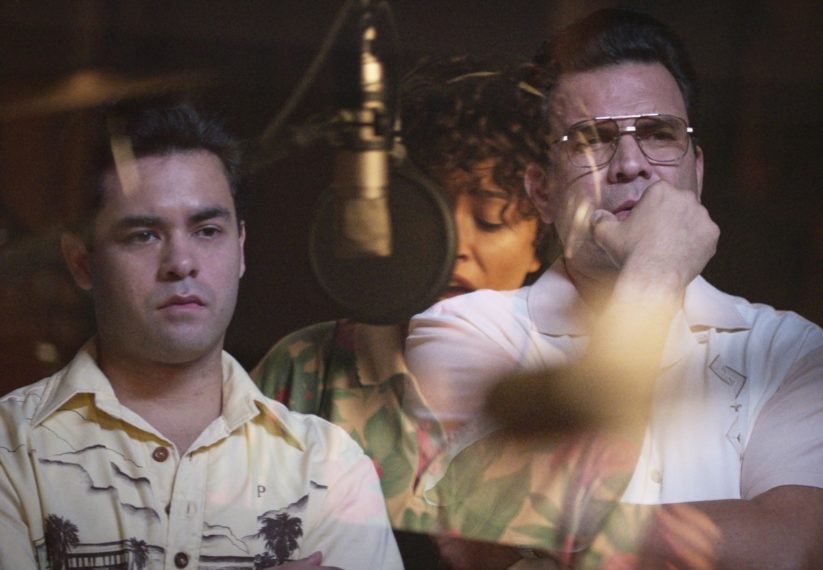
We had the opportunity to speak with Suzette. And there had been talk of trying to get together with the family, or that the family would come out and visit us on set. But, you know, schedules are what they are and then when COVID hit, it pretty much made that idea an impossibility.
Abraham’s pretty strict with Selena. Do you see that as a strength or a weakness?
Well, a strength is control — that’s number one. Again, this is a man of a certain age and from a certain generation. People would say it’s strict or harsh, [but] I would say it’s old school. I think that Abraham or my father would feel the same way. It’s the fact that underlying those tactics are love and compassion.
This is Part 1 of 2; have you finished filming the rest of the series?
We just finished. We were in the process of getting into the second part when the whole pandemic hit, but we started back up in August and then we finished in early November. And because of COVID, I drove from San Antonio all the way down to Rosarito, Mexico to finish taping just to keep myself self-contained. When I finished there, I drove up to Los Angeles.
What do you think fans old and new will gain from the story being told in this series?
The movie, from what I understand, focused on the relationship of Selena and Abraham, that father-daughter relationship. And you have this in our series too, but what you also have is a fully realized Quintanilla family. The amount of ensemble work that went into all of those scenes — we put a lot of care and a lot of time into those things, and we were led by two wonderful directors, two female directors out of Mexico City.
The story of this family and their humble beginnings and the, struggles and the sacrifice, it’s something that really resonated with me.
Selena: The Series, Part 1, Streaming Friday, December 4, Netflix
From TV Guide Magazine
'America's Got Talent': Simon Cowell Teases Big Changes in Season 20 as Mel B. Returns
The show’s judges and host preview the landmark season and reflect on how they’re keeping it fresh. Read the story now on TV Insider.







